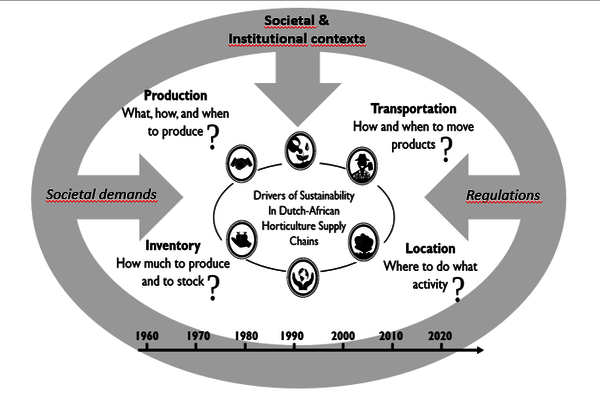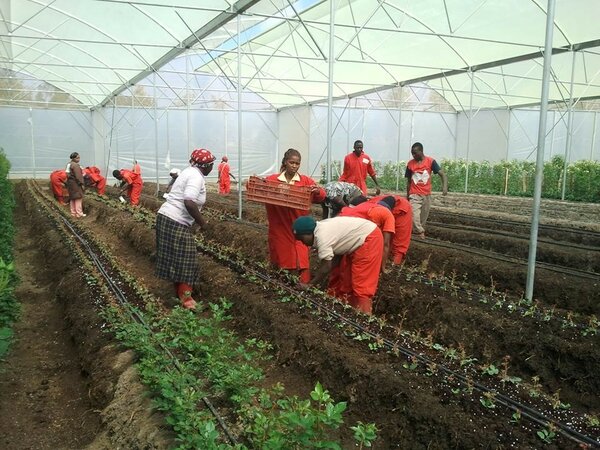Drivers of ‘Sustainability’ (DOS), in Dutch-African horticulture supply chains, 1960-2020

The Netherlands is a key hub in the international trade of fruit, flowers, and plants. The development of these supply chains has been highly technological. Transnational trade agreements allow for the extension from the Netherlands to (sub)tropic climates since the 1970s. Consumption of energy, fertilizers, pesticides, ´food miles´, (foreign) labor conditions and the ecological impacts became part of multifaceted debates about sustainable agriculture. These show the entangled international relation between western consumption trends and global production and urge rethinking and transformations of the supply chains involved. The project Drivers of ‘Sustainability’ (DOS), in Dutch-African horticulture supply chains,
1960-2020 aims at analyzing the long-term dynamics of sustainability impacts (i.e., economic, social, human and ecological effects) of the international horticulture supply chain between 1960 and 2020. DOS applies a multi-disciplinary approach to research into both new arrangements within the supply chain business network (i.e., farmers, processors, distributors, and retailers) as well as the dynamics in of surrounding international governance structure (i.e., governments, NGOs, financers).
Expertise in business logistics is applied to investigate the changes towards more sustainable supply chains, based on learnings derived from the past. More specifically, we aim at developing a multi-criteria decision-making framework to understand and support supply chain decisions in horticulture, taking into account the reality of the environment at that time. Advanced multiple criteria decision-making methods and computational techniques are used to solve the challenging models embedded in this general framework. The targeted framework will integrate multiple objectives, including the economic, ecological and social aspects of sustainability.
Historical approaches will be applied to study the societal embedding of the supply chains and the roles multiple stakeholders have in different locations of production. Sustainability monitoring will inform a reconstruction of stakeholder dynamics (Lintsen, Veraart, Smits & Grin 2018a, 2018b). This method will for the first time be applied to an analysis of transnational supply chains. The historical analysis will reveal the mobilization of sustainability issues by stakeholders at different locations and how these became drivers of the change in supply chain developments.
DOS will take horticulture supply chain of roses from Kenya s as a case study. This horticultural product effectively illustrate the expanding transnational supply chains since the 1970s and the sustainability issues involved.

Project team:
Marjolein de Leeuw (PhD candidate)
Dr. Frank Veraart, Assistant Professor History of Technology, School of Innovation Sciences, Eindhoven University of Technology.
Dr. Virginie Lurkin, Assistant Professor, Operations, Planning, Accounting and Control, School of Industrial Engineering, Eindhoven University of Technology.
Prof. Dr. Erik van der Vleuten, Professor History of Technology, School of Innovation Sciences, Eindhoven University of Technology.
Prof. dr. Tom van Woensel, Professor Freight Transport and Logistics, School of Industrial Engineering, Eindhoven University of Technology.
Research Embedding:
This research is part of the Innovation Sciences and Industrial Engineering of the TU/e
Project kick-off: 1 July 2019.